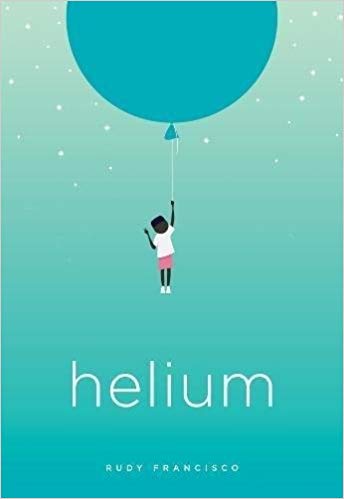
“Helium” is the debut poetry collection written by Rudy Francisco, who is one of the most recognizable names in the world of spoken-word poetry. As the summary of “Helium” suggests, it’s filled with work that is simultaneously personal and political, blending love poems, self-reflection and biting cultural critique on class, race and gender into an unforgettable whole. Francisco, at the age of 21, completed his Bachelor of Arts in psychology and continued his education by pursuing a Master of Arts in organizational studies. Using his platform to continue to discuss harsh topics, his poems and quotes have been viewed and shared millions of times as he continues to tour both the country and the world to perform his work.
As with Francisco’s previous work, “Helium” is impactful and quite lasting in its strong imagery, words and message. In the collection of 58 poems, he uses metaphors and comparisons in order to make the message relatable and to bring difficult discussions to the forefront.
Just like Francisco’s spoken-word performances, his collection allows for reflection and understanding on past events, even ones that we may be unfamiliar with. Francisco releases a concerto of words that fit together perfectly in such an artistic and bright way while conveying the darkest of topics in today’s society and our own psyches. He also includes some interesting facts among the imagery in order to tie it back into a reality that isn’t just emotion, but science, statistics and daily news.
From the very first poem in the collection, “Water,” Francisco opens up by writing the poem that alludes to a fear of water, likening the water to jaws of a liquid beast. He also sets the stage to his own self-awareness, and in doing so, gives us an open door into himself and his own self-proclaimed shortcomings and flaws. If anything, it makes him more realistic as a poet and storyteller by also making him one of us.
He features other poems that are about himself and his own self-reflection such as “My Honest Poem,” “Sip” and “Chameleon,” among others. In all of them, he features a short anecdote from his past or a regular daily activity. Throughout his poems, the imagery is heavy and displays, in a point of camaraderie, that he’s not perfect and is currently working on himself.
“I am not a love poet,” Francisco says. “Every time I try to write about love my hands cramp.” Despite his claim, his ability to write both love poems and poems of heartbreak is astonishing. In his poem “Correctly,” the last line of the paragraph-long piece is, “I promise I will love you as if it’s the only thing I’ve ever done correctly.” In “To the Girl Who Works at Starbucks, Down the Street from My House on Del Mar Heights Road, I Swear to God I’m Not a Stalker,” he continues his love-inspired poetry.
No stranger to heartbreak, Francisco features two poems of heartbreak that have gone viral on social media: “Scars” and “To the Random Dude Who started Dating My Ex-Girlfriend Two Days After We Broke Up (Yes, I Read That on Facebook),” which he has countlessly performed both separately and as a combined poem. Both poems feature a count from one to 10 in which he goes through the emotions and what he’s feeling post-heartbreak with someone he loved.
Political, racial and societal issues are also addressed in his poetry collection. He has poems that discuss the political climate of our nation. He speaks heavily on being a black man in America in our current state and how sometimes it’s easy to see himself dying over minuscule things merely because of his skin and the assumptions of others. In “Skin II” he writes, “your skin is that one friend who meets everyone before you do,” and expresses similar sentiment in other poems. He also discusses the global climate dealing with clean air in the poem “Trees” and discusses the depletion of water in “Roulette.” He continues to discuss what it’s like to grow up learning how to be a man, whether what he was taught was right or wrong and its influence on some of his shortcomings in his treatment of women, hypermasculinity and learning how to be emotional.
While those are the heavier topics of his poetry collection and sometimes are tough pills to swallow, he also writes motivational poems in which he tries to uplift others through their hardships and to help them understand that, eventually, there is a better tomorrow. Overall, this poetry collection provides discourse on a range of topics — happy, sad and indifferent. The range of emotions is not a rollercoaster, but a simple progression akin to life. Through his range and literary reflection, he provides an outlet for himself and comfort to others who find his writing relatable. Francisco tries to see the light at the end of the tunnel, and if it’s not there, he encourages both himself and his audience to create the light for themselves.


